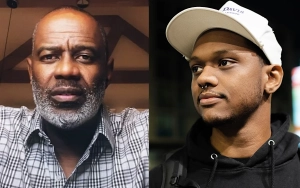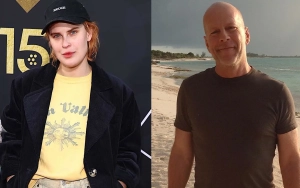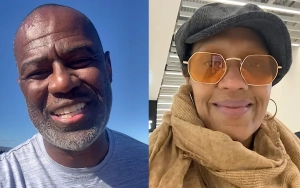
'I'm not saying the film is a documentary of everything that happened, but it's being misread,' so the filmmaker says, weighing in on recent allegation that her film has a pro-torture agenda.
- Dec 17, 2012
AceShowbiz - Drawing a lot of controversies since the beginning of its production, Kathryn Bigelow's "Zero Dark Thirty (2012)" was most recently labeled as a pro-torture for presenting some "enhanced interrogation methods" used by the CIA on al Qaeda detainees. Reacting to the swirling debate, Bigelow insisted that her work had been misinterpreted by some people.
"The point was to immerse the audience in this landscape, not to pretend to debate policy," Bigelow said to TheWrap, while admitting that featuring torture in the film was unavoidable since it was a part of history. "Was it difficult to shoot? Yes. Do I wish [torture] was not part of that history? Yes, but it was," she claimed.
Her screenwriter partner, Mark Boal, added, "Everything we did has been misinterpreted, and continues to be." Bigelow went on stating that those who said her film made a case for torture were simply not paying attention. Besides, many of those who chimed in on the subject hadn't even seen the movie.
"I'm not saying the film is a documentary of everything that happened, but it's being misread," she said. "The film shows that the guy was waterboarded, he doesn't say anything and there's an attack. It shows that the same detainee gives them some information, which was new to them, over a civilized lunch."
"And then it shows the [Jessica Chastain] character go back to the research room, and all this information is already there - from a number of detainees who are not being coerced. That is what's in the film, if you actually look at it as a movie and not a potential launching pad for a political statement."
Boal, however, acknowledged the fact that the movie would draw controversy was not so surprising. "The movie has been, and probably will continue to be, put in political boxes," he said. "Before we even wrote it, it was [branded] an Obama campaign commercial, which was preposterous. And now it's pro-torture, which is preposterous. We haven't really talked about that, but I want to start."
He also explained that the real agenda of the movie was not to boost Obama's image or to be an apologist for torturers. "Our agenda isn't a partisan agenda - it's an agenda of trying to look behind the scenes at what went down," he said. "Hopefully art or cinema can present a point of view that's a little above the political fray, but that doesn't mean the political narrative doesn't try to assert itself and pull you back in."
The pro-torture issue was first brought into attention when Frank Brunni of The New York Times criticized the early sequence of the Osama bin Laden hunt film, which featured an agent named Dan (portrayed Jason Clarke) went violent toward a detainee. "The movie shows a detainee being strung up by his wrists, sexually humiliated, deprived of sleep, made to feel as if he's drowning and shoved into a box smaller than a coffin," so Brunni wrote.
The critically-acclaimed political thriller will open in selected U.S. theaters on December 19, before expanding to nationwide release on January 11. Three days before the wide release, the film will throw a special screening in Washington D.C., which reportedly will be attended by politicians, members of the executive branch, opinion makers and Washington journalists.





